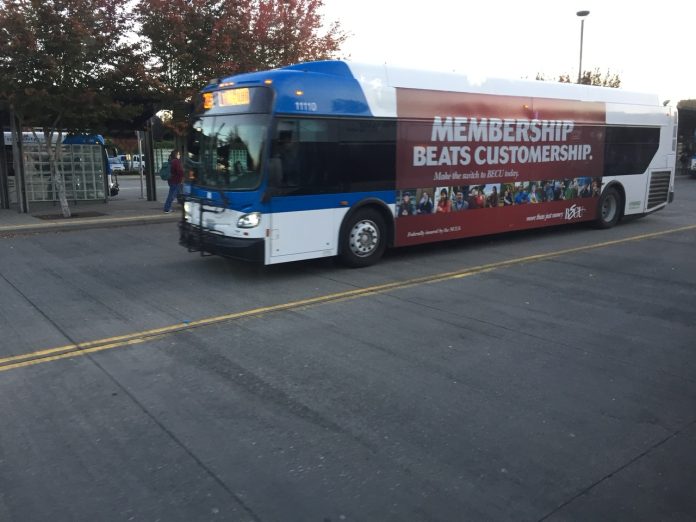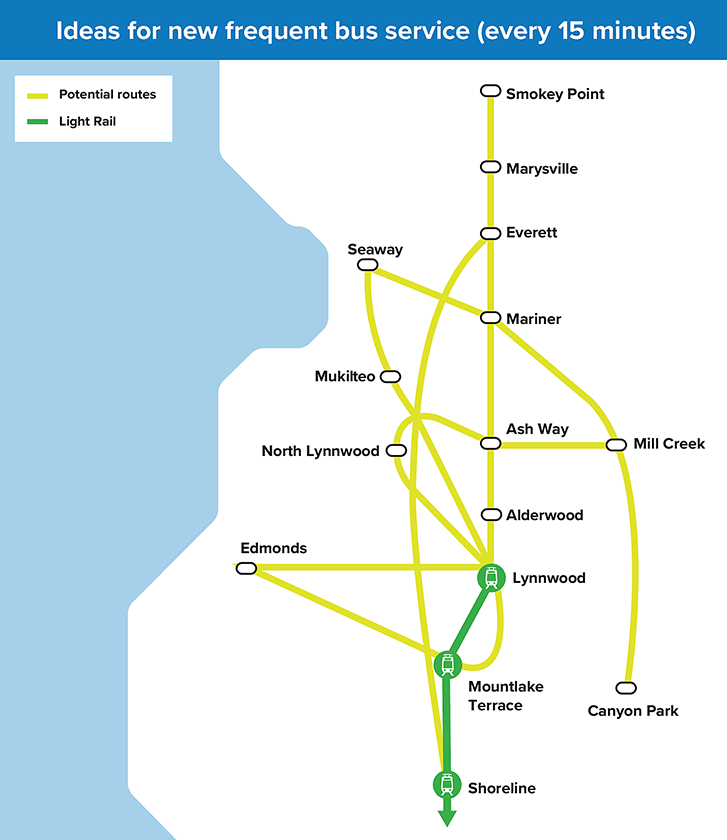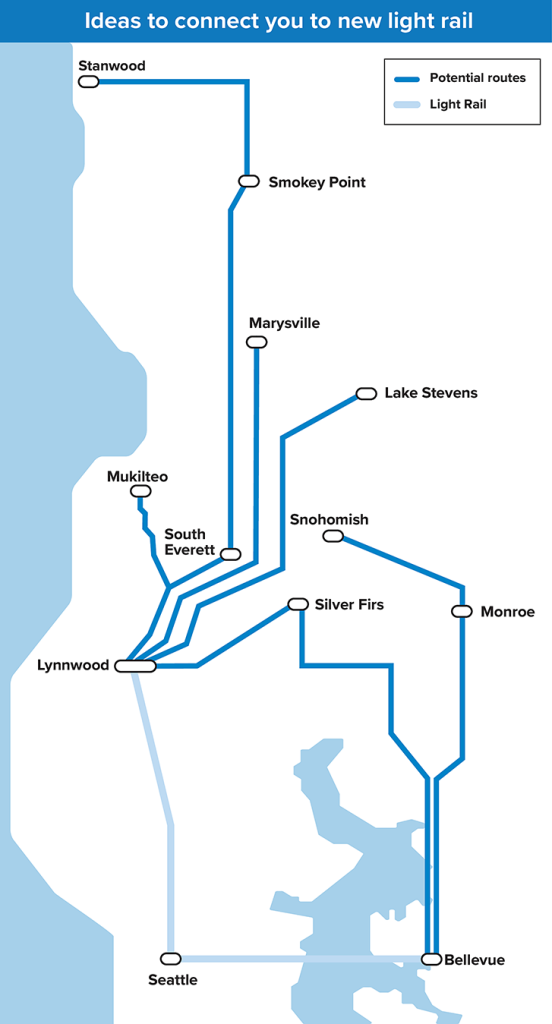In just three short years, Link light rail will reach Lynnwood in Snohomish County, which will allow for Community Transit to cut back a lot of bus service to Seattle currently running on the I-5 corridor. In anticipation of the coming changes, Community Transit has just kicked off a process to study where to cut back service and redeploy saved service hours within Snohomish County. Lynnwood will obviously be a focus of enhanced bus service for local and commuter needs since light rail will offer swift service to destinations like Downtown Seattle, Seattle-Tacoma International Airport, and Federal Way without necessitating another transfer.
Additionally, Community Transit just completed a successful bus restructure that largely funnels riders on Community Transit commuter and ST Express routes to Northgate Station in Seattle. This restructure has unlocked more frequent bus service in order to shorten connections. It has also meant better reliability since most buses don’t have to slog through clogged highways and streets south of Northgate.
Priorities for future service
Initial priorities for Community Transit’s 2024 bus restructure include more frequent service, direct connections to light rail, the ability to tailor service to local needs, and the provision of service solutions by geographic area. These are some ideas and priorities that the agency has put out there:
- On the frequency front, Community Transit wants feedback on where extra service would be useful. The agency is contemplating more weekend trips and expanding the span of service across time periods. Entirely new routes may be possible, as suggested by a very rough map. In addition, Swift bus rapid transit service expansions will be rolled out in 2022 and 2024. The Swift Orange Line is first on deck in 2022 with service between Mill Creek and Edmonds College via Lynnwood’s future light rail station. Then in 2024, the Swift Blue Line will be extended to the Shoreline North/185th Station.
- Once light rail to Lynnwood opens, Community Transit will no longer need to provide commuter bus service to Seattle, freeing up commuter buses to run only to Lynnwood Station. The agency has a vague idea of running commuter bus routes from Stanwood, Smokey Point, Marysville, Lake Stevens, Silver Firs, Mukilteo, and South Everett to Lynnwood.
- Community Transit could also pivot to focusing on local transit needs, which could involve adjusting bus routes, adding circulator shuttles, or using flexible on-demand service.
- The local bus service network could reach more neighborhoods and be revised as follows:
- In the northwest service area, an all-day express service between Lynnwood and Marysville-Smokey Point-Standwood, with route adjustments to enhance service in an industrial area near the Arlington Municipal Airport, and restructuring of bus service in the Quil Ceda Village area.
- In the northeast service area, frequent all-day service from Lake Stevens and Monroe to Everett, new service to destinations along I-405, extra service from Monroe, and extended routes to growing areas.
- In the southwest service area, more bus connections to the Swift lines, frequent bus connections to the Edmonds and Mukilteo ferry terminals, additional Paine Field service, and better overall frequency to light rail and key destinations.
- In the southeast service area, new service on North Road to provide service to Lynnwood High School, better east-west bus service between I-5 and SR-527, enhanced connections to the Swift Green Line, and extended service to growing areas.
Next steps and outreach
Community Transit expects to create a draft plan and share it in the spring for public feedback, which will then be used to create a revised feedback plan in the summer. A final version could be approved by the end of next year and then implemented in phases during 2023 and 2024. Feedback for the current phase is open through December 17th online.
Stephen is a professional urban planner in Puget Sound with a passion for sustainable, livable, and diverse cities. He is especially interested in how policies, regulations, and programs can promote positive outcomes for communities. With stints in great cities like Bellingham and Cork, Stephen currently lives in Seattle. He primarily covers land use and transportation issues and has been with The Urbanist since 2014.





